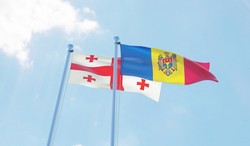One step closer to EU integration for Georgia and Moldova
Through secondments to partner universities, the EU-funded EU-PREACC(opens in new window) project covered the EU’s cooperation with Georgia and Moldova as it is linked to the European Neighbourhood Policy Action Plan and EU conditionality. To propose benchmarking opportunities most suitable for Georgia and Moldova, EU-PREACC explored the two countries’ economic, legal and political situations and developments. Specifically, project partners mapped the nature and results of the CEE pre-accession procedure from the beginning of their accession negotiations until accession in 2004 and 2007. Focus was on critical variables in the reform process, namely which decisions and choices eventually led to faster convergence and which slowed it down. They studied EU-Georgia and EU-Moldova cooperation in all policy fields of EU enlargement criteria. Using previous findings as a basis, researchers then analysed which aspect of the CEE 2004 and 2007 enlargement experience can be applied to Georgia and Moldova. They considered which candidate states were closest to the two, which experience can be used for benchmarking and which reform experience can be transferred. Another consideration was the main changes in EU enlargement criteria set by the European Commission and which changes relate to current EU-Georgia and/or EU-Moldova cooperation in Europeanisation and harmonisation. Lastly, the EU-PREACC team investigated the state of play in Georgia’s and Moldova’s education systems and degree programmes. This led to recommendations for curricula development or special programmes in order to prepare experts involved in policy reform, reform planning, EU and EU law negotiations, and policies in general. Academic mobility and knowledge sharing via thematic workshops, lectures and publications helped to raise the visibility of EU and EU-related studies in Georgia and Moldova. By shedding light on the obstacles to CEE EU pre-accession, EU-PREACC should facilitate Georgia’s and Moldova’s active pursuit of European integration.



